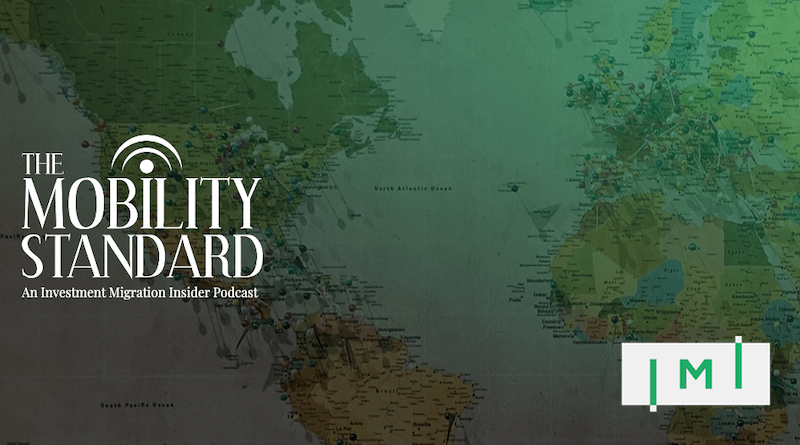Podcast: Independent Means Visas Eating Into Golden Visas’ Market Share
Independent means visas (IMVs), such as Portugal’s D7, Greece’s FIP, and Italy’s Elective Residency have rapidly gained attraction in a post-pandemic mobility market, where those who might previously have opted for a golden visa (which doesn’t demand physical presence) are increasingly willing to relocate.
In this episode of the Mobility Standard podcast, we spoke to Andre Bothma, founder of D7visa.com and an expert on independent means visas more broadly, to learn what’s driving growth in the IMV market, why IMVs are – as Bothma has claimed – an existential threat to golden visas, and why it behooves investment migration firms to include IMVs in their program portfolios.
Bothma, a South African national, explains that when he was exploring ways to move to Europe eight or nine years ago, “there was a dearth of options available to South Africans. […] The only thing I could find at the time was the golden visa program in Portugal. That was the one that was known and being actively marketed, as well as some hybrid, informal programs in Slovenia and Hungary. So, effectively, there was a very limited range of options and they were all very pricey.”
For years on end, he says, the only thing those who wanted to relocate to Europe were the golden visas because the independent means visas, while they already existed, were not marketed and remained largely unknown.
The reason IMVs have gained tremendous popularity since the pandemic are three-fold, he says:
- Investors became more open to physical relocation, especially because of the rise in remote work;
- Investors couldn’t travel and were, therefore, more hesitant to buy golden visa real estate;
- Investment migration companies began to actively market IMVs as a way of pivoting during changing market conditions.
“I now frequently talk to people who have the means to get a golden visa but who are now more interested in D7 visas. Because they don’t necessarily need all of the flexibility anymore.”
The top two applicant nationalities, he says, are Americans and British, i.e., not your typical investor migrants. For the British, he postulates, it’s about regaining access to the Schengen area, while for Americans, the appeal of D7 is the Portuguese lifestyle proposition.
“Many are looking to settle in a place with less political polarization than the US.”
Listen to the episode by clicking the player above, or find the Mobility Standard on Spotify or Apple Podcasts.
Christian Henrik Nesheim is the founder and editor of Investment Migration Insider, the #1 magazine – online or offline – for residency and citizenship by investment. He is an internationally recognized expert, speaker, documentary producer, and writer on the subject of investment migration, whose work is cited in the Economist, Bloomberg, Fortune, Forbes, Newsweek, and Business Insider. Norwegian by birth, Christian has spent the last 16 years in the United States, China, Spain, and Portugal.



